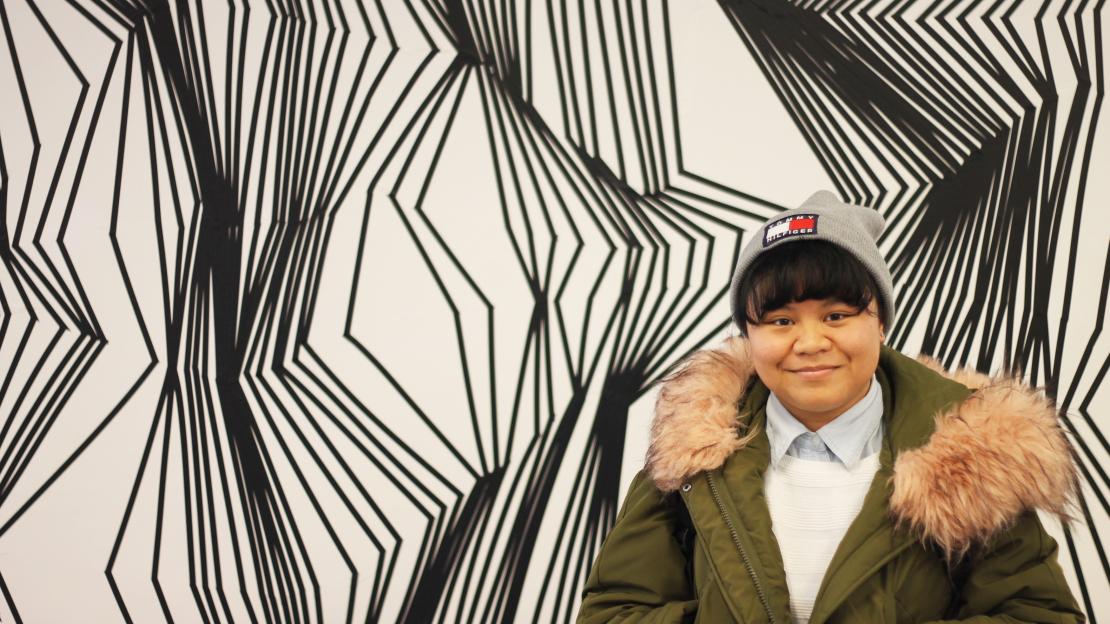First year was a time of experimentation and contemplation for Anna Marie Baradi.
Originally focused on pursuing science in her university career, she considered medical laboratory science, biological science, and found herself really liking her health studies classes. But a double major in biological science and health studies sounded stressful. That’s when she had an epiphany. She could still pursue health studies (in health policy) but also study her passion and hobby: music.
Music had always been a part of her life. In Grade 7 and 8, she started with flute. When she got to high school and found herself surrounded by talented flutists, she experimented with other instruments and found herself drawn to strings. Her father was a guitar player, and one day she picked up the guitar he had laying around the house and began teaching herself.
Eventually she taught herself electric bass, the instrument that has stuck with her through her time at UTSC. She started performing in small ensemble, but she also wanted the large ensemble experience. No electric instruments there, so she set about teaching herself the double bass.
In both her majors, Anna Marie loves the study of culture. In Health Studies, she takes courses on the cultural and societal factors affecting health. And in music, “I like hearing how music affected cultures across time, how much thought goes into music, how it affects people, and how much people care about it.”
“I like hearing how music affected cultures across time, how much thought goes into music, how it affects people, and how much people care about its," says Baradi.
Sometimes her two majors intersect in big ways – her upcoming final project for a course called "Toronto Stories of Health and Illness" will have her use her creative side to present local health issues in a form of digital storytelling. They come together in small ways too, such as when she learned that Beethoven’s onset of deafness had a profound impact on his music. Her interest in these culture-based courses led her to adding in a minor when she found out Health Humanities had launched at U of T Scarborough last year.
When she tells people about her major-major-minor combination, people often say things like, “That’s so interesting! What are you going to do with that?”
She’s not going to worry about that for now. The fourth-year student is pursuing internships or summer research assistant jobs where she can use her skills from both of her majors. She’s not sure if she’ll pursue a professional career in music or keep it as her hobby. Baradi says "my future plans consist of going with the flow and seeing what opportunities might interest or come my way, but its also really exciting to be able to move on to another chapter in my life."
Here’s a taste of Baradi’s work — a composition she created for one of her performance courses:
March is “choose your program” month on campus. If you could use guidance in deciding your program, the Academic Advising & Career Centre department has appointments, workshops, and online resources to help. Visit uoft.me/choosing to find out more.
